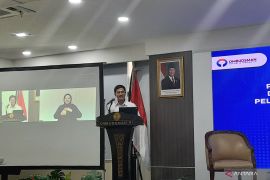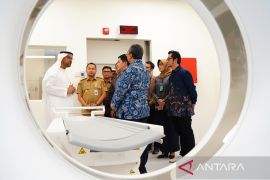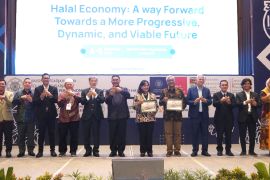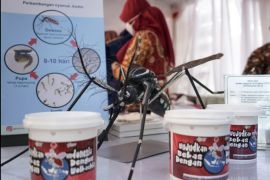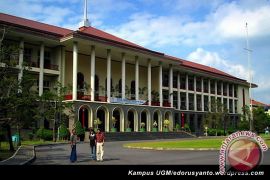"Because there has been a pharmacogenomic test. Tests with the genomic background are now available," she noted during an online discussion on 'Innovating Diagnostics, Shaping Healthcare, and Saving Lives', here on Saturday.
The medical sector is becoming more advanced, and it can be seen from every patient who benefits from the offered treatment, she added.
From the presented data, eight types of drugs in each population were examined, she explained. In the Indonesian population, researchers found two classes of drugs that need to be prescribed more carefully, one of which is anti-epileptic drugs because they can cause hypersensitivity, she said.
"The frequency is high in the Mentawai and Nias ethnic groups. Given the data, we should be careful to prescribe the drug," Sudoyo added.
In this case, healthcare should involve a system that evaluates patients' reactions to drugs so that clinicians can provide appropriate doses of treatment and interventions before a decision is made, she said. Therapy can also be applied for drug safety and efficacy, she added.
Healthcare personalization can also allow everyone to have better access to treatment at a relatively low cost, she said. This approach changes the "broomstick" model of treating diseases, she added.
Under more personalized healthcare, when patients come to a health facility, their symptoms and laboratory results are compared to millions of similar patients, Sudoyo explained. Then, the results are matched with the types of treatments proven to have a high potential for success, she said.
The shift to personalization of health services is important, considering that the number of patients suffering from non-communicable diseases has increased every year, she added.
Related news: Improve healthcare facilities after easing of restrictions: MPR
Moreover, regarding Indonesia's readiness in healthcare personalization, she cited the results of the Personalized Healthcare Index published by FutureProofing Healthcare, which is led by a panel of 15 leading health experts in Asia-Pacific.
In the survey, Indonesia was ranked eleventh out of 11 countries, she noted. The index describes the readiness of the four pillars: health information, healthcare, personalized technology, and policy, she said.
"We have shortcomings such as the availability of data, infrastructure, and human resources expertise that can drive personalized health services," Sudoyo added.
Meanwhile, Dr. Yodi Mahendradhata, M.Sc, Ph.D., FRSPH from the Faculty of Medicine, Public Health and Nursing, University of Gadjah Mada (UGM) said that multi-sector collaboration can play a key role in achieving equitable healthcare for everyone.
"We have learned from the COVID-19 pandemic, where it is clear that health systems need to innovate to stay relevant to the future needs of society," he remarked.
According to him, to realize health services personalization, fundamental changes are necessary for planning, regulation, and implementation.
"Our government has done an incredible job with JKN (National Health Insurance), and as we move toward global health coverage, there are opportunities to apply personalized healthcare," he added.
With a more advanced system, Indonesia can prepare more sustainable healthcare, he said.
Related news: Healthcare reform key to tackle pandemic: Health Minister
Related news: Herbalife Nutrition enhances personalized nutrition program with launch of Gene Start in South Korea
Translator: Lia S, Kenzu T
Editor: Suharto
Copyright © ANTARA 2021


